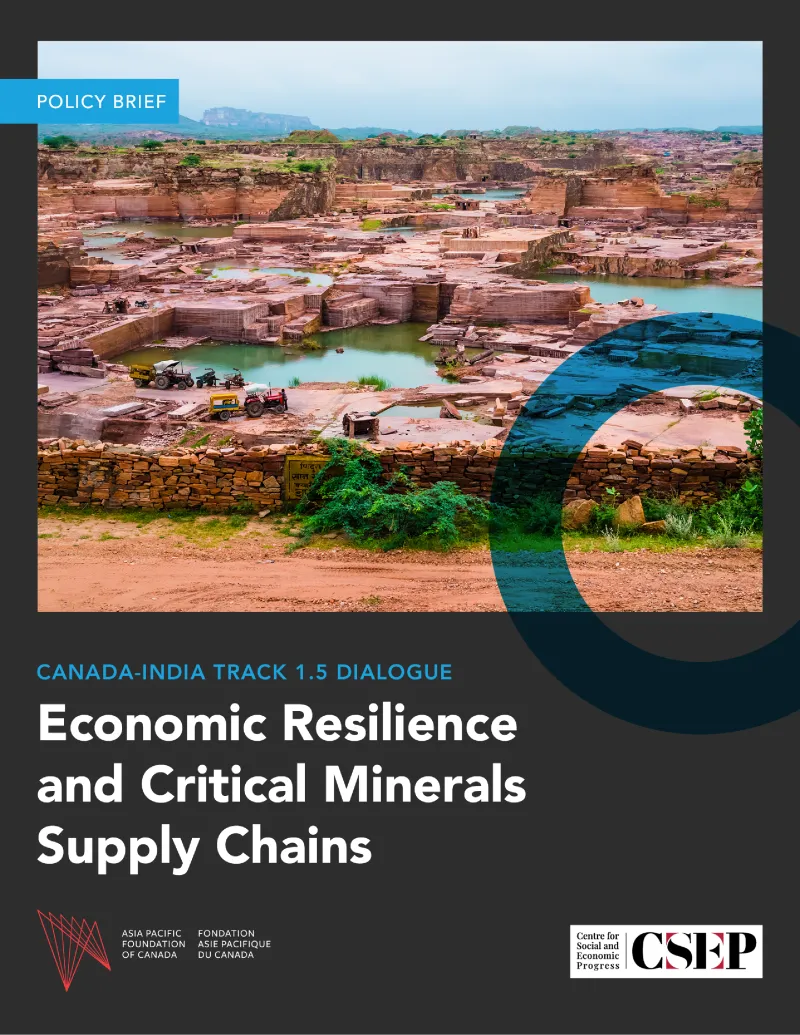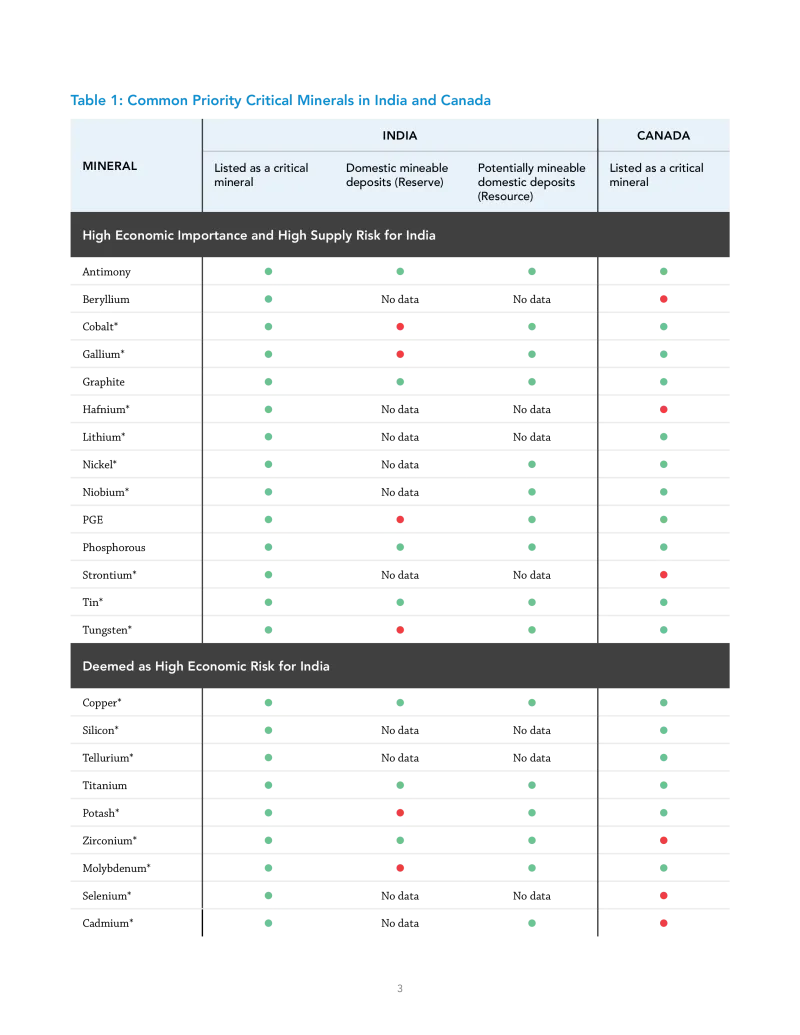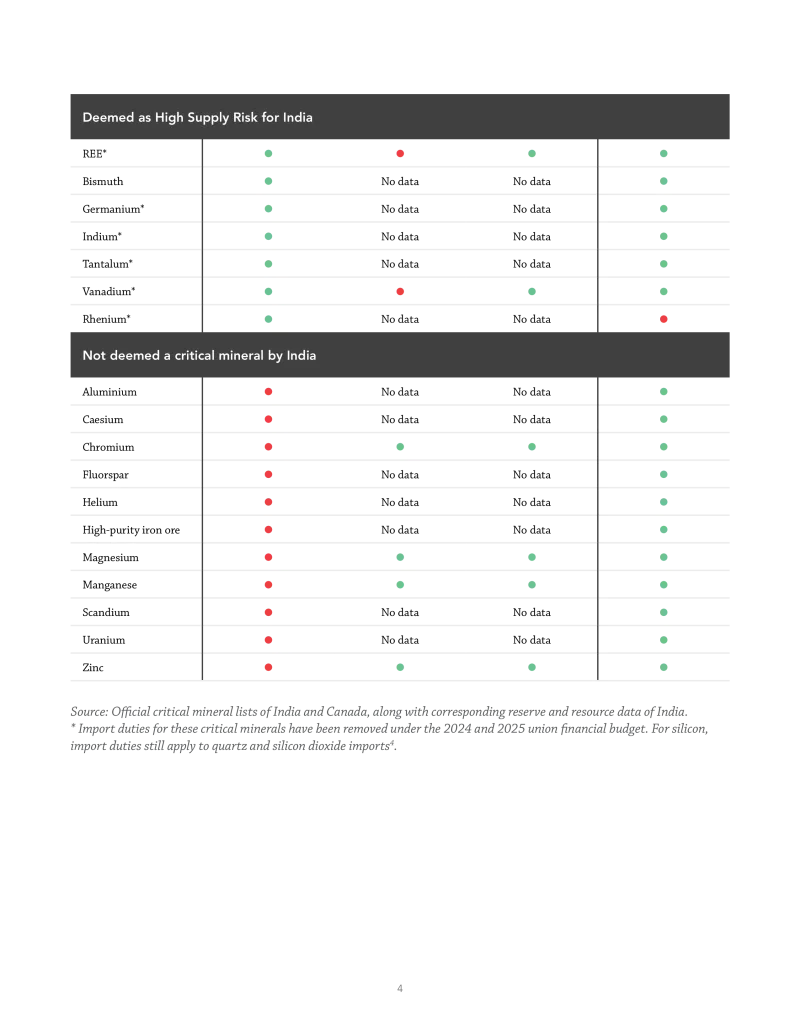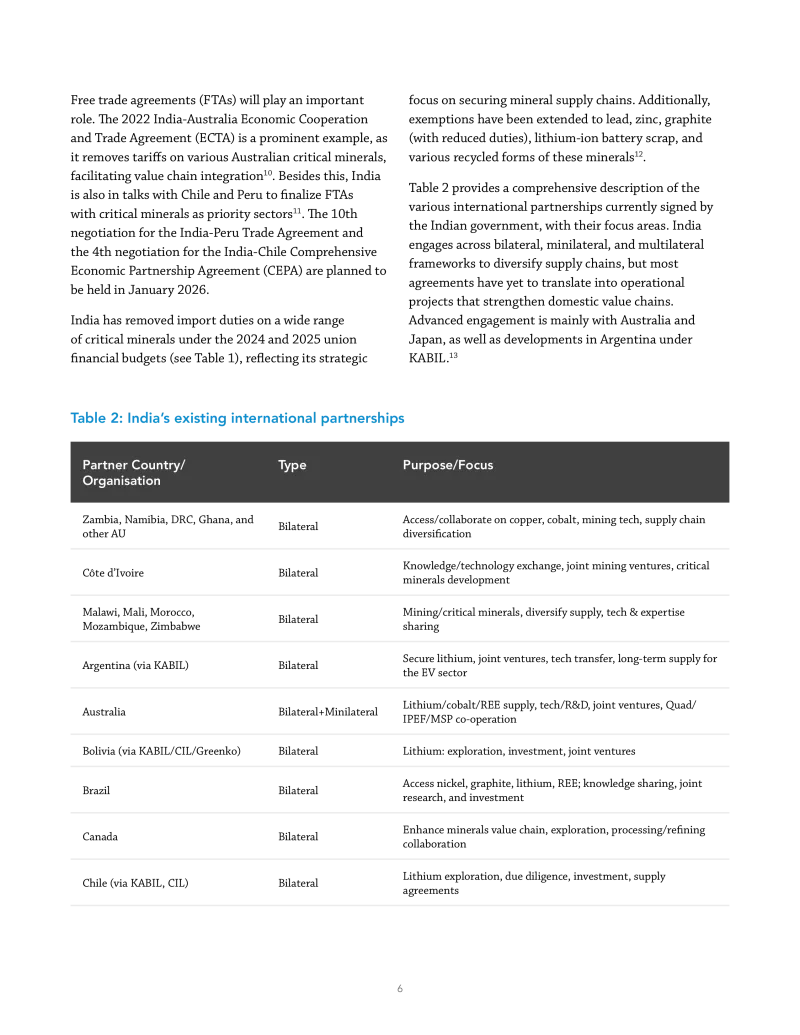A Policy Brief in support of APF Canada's November 25, 2025, India-Canada Track 1.5 Dialogue on Critical Minerals and Supply Chain Resilience in New Delhi, India.
By Anindita Sinh, Noel Therattil, and Pooja Vijay Ramamurthi, produced in partnership with the Centre for Social and Economic Progress
As India and Canada seek to diversify their trade dependencies, strengthening bilateral relationships has been a priority. Critical minerals and the clean energy transition have emerged as shared strategic issues between the two partners. This emphasis reflects both countries’ commitments under the G7 Critical Minerals Action Plan (June 2025) . The October 2025 Joint Statement during Canadian Foreign Minister Anita Anada’s visit to New Delhi underscored collaboration on green supply chains, clean technologies, and responsible mineral development. Further, the recent India-Canada Ministerial Dialogue on Trade and Investment (MDTI) held in November 2025, signalled growing policy alignment and aims to further sustainable economic co-operation.
India and Canada have 23 common critical minerals – including lithium, graphite, copper and Rare Earth Elements (REEs) – on their official lists as highlighted in Table 1. These official lists reflect minerals that both countries consider essential for economic growth and energy transitions, often due to heightened risks of supply disruptions. Canada has vast mineral reserves, advanced mining technologies, established regulatory processes, and processing expertise, which, combined with India’s growing market, manufacturing capabilities, and clean energy ambitions, are an organic synergy for a meaningful economic partnership. Yet, despite this complementarity, Canada’s current contribution to India is minimal, making up only 2% of Canada’s total critical mineral export share.
This is a pivotal moment to deepen co-operation on critical minerals, as a closer partnership with Canada offers a concrete pathway to rebuild trust, strengthen engagement, and advance mutual prosperity. To this end, both countries committed to re-establishing the Canada-India Ministerial Energy Dialogue (CIMED) and holding the first Critical Minerals Annual Dialogue in Toronto in March 2026, marking a renewed phase of structural engagement.
This policy brief aims to understand the role that Canada can play in the context of India’s broader energy security goals. It does so by examining existing domestic priorities of India’s critical mineral strategy, particularly on the role of international co-operation.
Download the Policy Brief to read more (button above).














